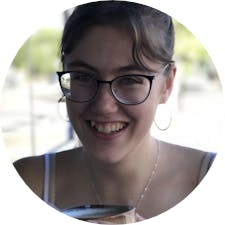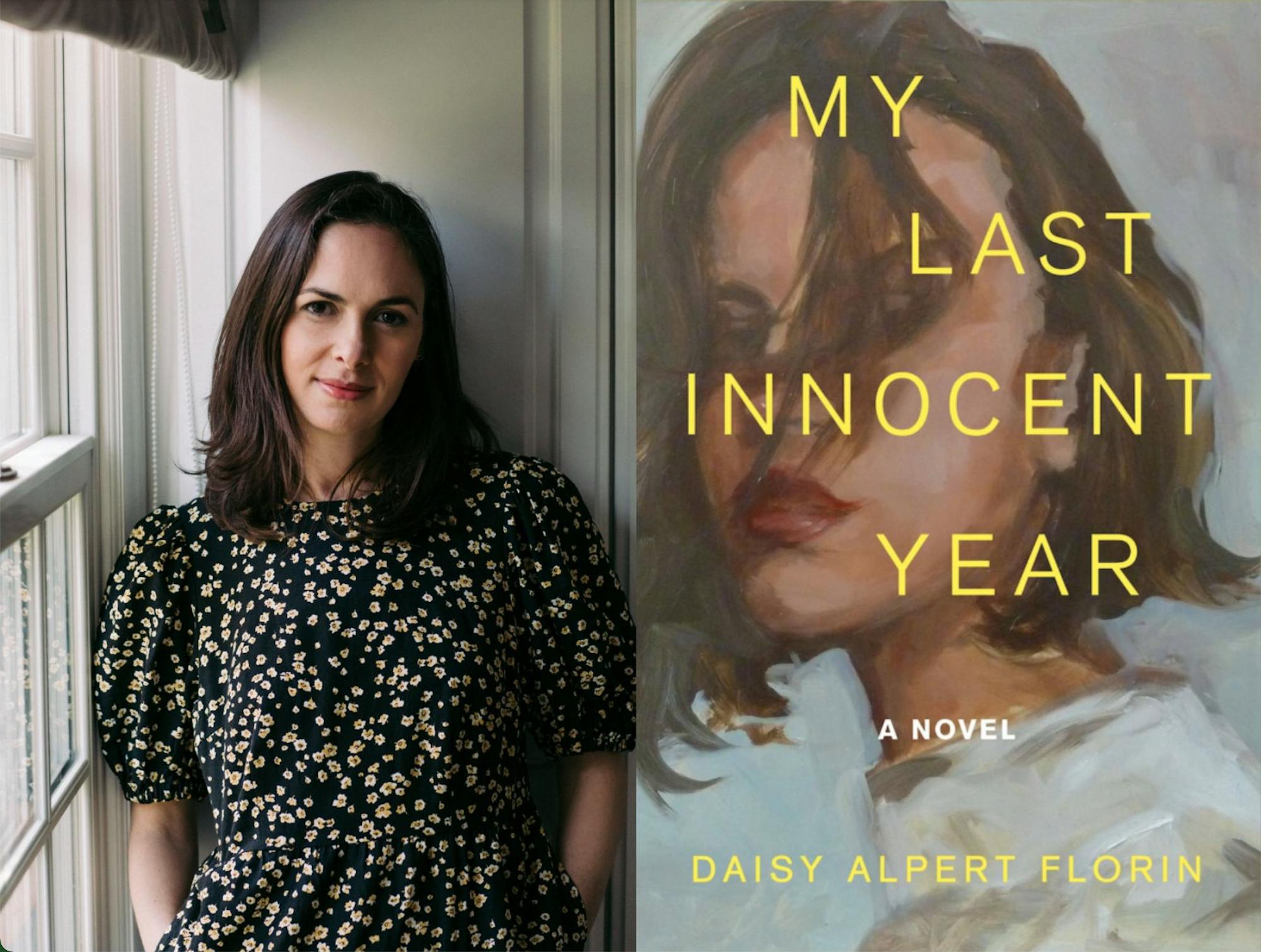On February 14, 2023, Daisy Alpert Florin ’95 released her debut novel “My Last Innocent Year” about a young woman's final semester at a small college in New Hampshire. Florin was recently named a “Writer to Watch” by Apple Books. The Dartmouth sat down with Florin to learn more about what motivated her to write the novel.
What was your inspiration for writing “My Last Innocent Year?”
DAF: I had been writing personal essays for about three or four years before I started writing the novel. Many of the essays I had written — including a couple for The Dartmouth Alumni Magazine — were about my college years. Once I finished getting those stories down, I found that I was still really thinking about that time in my life. The book takes place during the main character’s last semester in college, so I was thinking about that moment when you're standing on the edge of adulthood and leaving your childhood or adolescence behind: “Are you really ready?” I wanted to dive more into that: The setting of college, the 90s and that time of my life. But I wanted to do it on a bigger stage — to write a full novel about it and explore some of the issues I had been thinking about, but that hadn't specifically happened to me.
How did the politics of the 90s play into the process of writing this novel?
DAF: When I started writing the book, it was vaguely set in the 90s, without a specific political backdrop. I was writing between 2015 and 2020, which was when a lot of things in our culture were happening, like the rise of Trump and #MeToo. I started to think about how to bring some of those political issues into the book. So I decided to set the book in 1998 to use the backdrop of the Clinton-Lewinsky scandal and think about how that might have impacted college students at the time.
It was interesting to revisit Clinton and Lewinsky while writing. Monica Lewinsky had recently come out of isolation and was speaking up in the context of #MeToo. Women my age were reflecting on things that had happened in the 90s and thinking about what it all really meant through a different lens. So I think that's something we were doing both personally and on a cultural level.
What was the significance of the protagonist’s Jewish identity in the creation of the novel?
DAF: I grew up in a mixed faith family. My dad is Jewish, but my mom was not Jewish, and I was raised without religion. But I was from New York City and felt culturally Jewish, which made me feel very different from the larger culture at Dartmouth.
I wanted to give Isabel — the protagonist — this unusual upbringing, where she's from the Lower East Side of Manhattan and her dad owns this Jewish store, but she's not religious. She doesn't fit into the larger culture at Wilder College, but she also feels distant from the Jewish students on campus like her friend Debra who is more traditionally Jewish, or Zev who is Israeli. I think I was drawing on my own feelings of being kind of an outsider at Dartmouth, although I had a lot of things that made me an insider. I wanted to play with that feeling of outsiderness because I think everyone who comes to college is an outsider.
That's one of the things I have come to learn now that I'm older and when I talk to people who went to Dartmouth with me. Even the people I perceived as being insiders or as part of the prevailing culture admit to feeling like they didn't fit in either. And that was really an interesting revelation to me.
What do you hope that readers will take away from “My Last Innocent Year?”
DAF: I’ve gotten feedback from people of different ages who feel like it really speaks to their experience in a college community, particularly at a small liberal arts college. I’m also specifically writing for women who are looking back at how they came of age and the different systemic forces that played into their development as women: as sexual beings, as creative beings, as artists. I really wanted to get at how women’s development can be derailed by patriarchal institutions and by the men who hold up those institutions.
I've also heard from young women who have read the book and appreciated that there’s a retrospective voice to the book. In the book, Isabel is telling the story from a point in the future, so she’s looking back on this experience, which lets us know that she has arrived on the other side of these things and has survived what has happened to her. It makes readers feel like they will also get through the things that have happened to them, that there is a point on the distant shore where they will finally arrive.
What advice do you have for students at Dartmouth who might be interested in pursuing writing?
DAF: There are a lot of different ways to walk the creative path. You don’t have to know right after coming out of college that this is what you want to do. Sometimes it happens later, and that’s okay. Writing is not a path you can’t get back on after doing something else. It’s there anytime you want to come back to it. I feel that so strongly.
I always thought writers were people who were English or creative writing majors, and wrote for the literary journal, and then they left school and got an MFA and they published short stories. I thought if I hadn't done any of those things, I was “off the path,” or that it was not a path that was available to me. I then discovered that you can pursue writing at any time. You can spend 10 years working a different job because you need to make a living. And then you can decide: Now I want to pursue writing. It doesn’t leave you.
I really want to make that clear because I did not feel like anybody ever told me that. Hopefully it doesn’t take 25 years for you to find your way back to writing, but if it does, it does. And that will be the book you need to write.
This interview has been edited and condensed for clarity and length.

Elle Muller is a ’24 from Tucson, Arizona. She is double majoring in English and creative writing & theatre. At The Dartmouth, she served as the news executive editor for the 180th Directorate. Before that, she wrote and edited for Arts. In addition to writing, Elle is involved with dance and theatre at Dartmouth.




